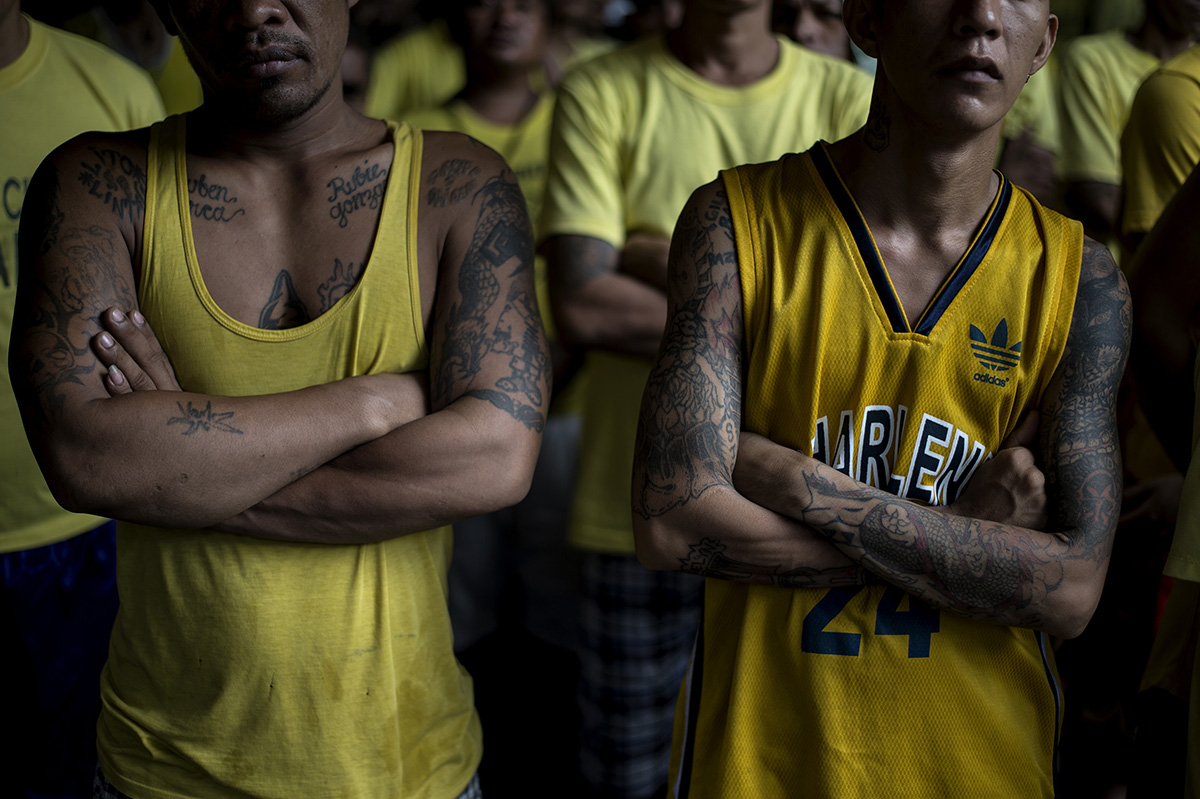Accused murderer Manuel Cerna has languished in a Philippine jail for 15 years without a verdict, one of countless inmates enduring interminable trials that are expected to get longer as an unrelenting drug war overwhelms the courts.
A notoriously slow and under-resourced judicial system has seen a "tidal wave" of new cases as police have conducted a nationwide crime crackdown in response to President Rodrigo Duterte's order to eradicate all illegal drugs from Philippine society.
The case of Cerna, 60, who almost died of tuberculosis in one of the nation's most overcrowded jails as his hearings dragged on, is not unusual in that his time in jail while on trial is close to reaching the minimum sentence.
"I get depressed. Some others here committed suicide because their wives left them. They lost all hope of freedom," Cerna told AFP (Agence France-Presse) in the Manila jail surrounded by rusting barbed wire and the stench of rotting food.
So-called "decader" inmates – because they have spent 10 years or more behind bars while on trial – are a symptom of a deeply flawed justice system that helped fuel Duterte's rise to the presidency last year.
Duterte won the elections on a brutal law-and-order platform, promising swift justice chiefly by killing tens of thousands of criminals and a no-mercy stance on convicted criminals who he said could not be rehabilitated.
Duterte's police have indeed shot dead thousands of people as they have scoured slums hunting drug traffickers and addicts, leading rights groups to express alarm at what they say are a wave of extrajudicial killings.
This has undoubtedly avoided many trials.
But another 96,700 people have also been arrested as part of the drug war since Duterte came to power, according to the presidential spokesman, adding to pressure on jails that were already nearly six times more crowded than they were built for.
Defendants often have to wait months between hearings, only for the session to be delayed because a judge is sick, a prosecutor fails to show up or a lawyer has another engagement. Sometimes the case gets reassigned to a new judge and the whole process starts from scratch.
In other cases, public attorneys assigned to defend poor suspects change jobs without handing over crucial documents to their replacement, or worse, files get lost, and again the defendant is back at square one.
Vicious cycle
"There is a tidal wave flooding the judiciary. (But) there is no attendant increase in the number of courts, judges, prosecutors and public attorneys," Raymund Narag, assistant professor at Southern Illinois University in the United States, told AFP.
"Extrajudicial killings are justified for Filipinos because of the failure of the criminal justice system. It becomes a vicious cycle."
Trials nationwide last an average of six to 10 years, according to prominent human rights lawyer Jose Manuel Diokno.
A Supreme Court task force on prison de-congestion last year also said "an innocent man is jailed for at least five years before he is eventually acquitted".
One of the key problems is simply a lack of courts, prosecutors and judges.
There are just 2,600 criminal, civilian and other types of courts for a population of 100 million, Supreme Court administrator Midas Marquez told AFP.
Thirty percent of those courts have no judges, according to Marquez's office.
This leaves the others with impossible tasks, with judges having to handle up to 5,000 cases at any one time, Marquez said.
'Band-aid' solutions
The Supreme Court has in recent years sought to do what it can, such as by introducing computerised records and setting up a system to lock in a firm timetable for hearings. Otherwise many months pass without hearings taking place.
"(But) these initiatives are band-aid solutions. What we need are institutional solutions like adding courts and funding them, which require the support of congress and the executive (branch)," Marquez said.
The government is fast-tracking the hiring of hundreds of prosecutors and improving staff training, justice department undersecretary Antonio Kho told AFP.
Duterte has also promised to pour extra funds into the penal system next year.
But he has also repeatedly made comments that have raised questions about his administration's intent on improving the nation's jails and prisons.
"I prefer that they (inmates) sleep standing," Duterte said in March when discussing the problem of packed jails. – AFP
